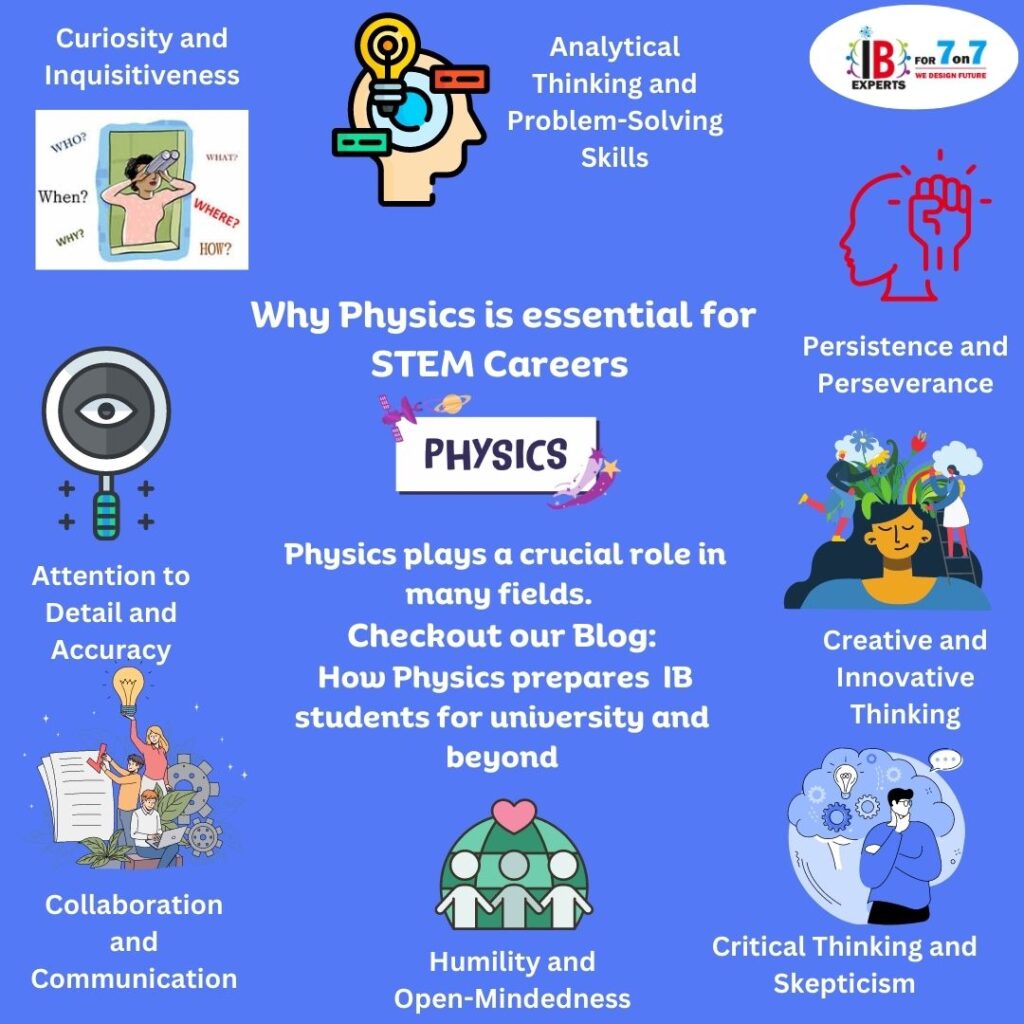
Studying physics can have a significant impact on the development of a student’s personality in several ways:
Curiosity and Inquisitiveness: Physics encourages curiosity about the natural world and a desire to understand how things work. Students studying physics learn to ask questions, explore concepts, and seek deeper explanations. This fosters a sense of curiosity and inquisitiveness that extends beyond the realm of physics and into other areas of life.
Analytical Thinking and Problem-Solving Skills: Physics requires analytical thinking and problem-solving skills. Students learn to break down complex problems into smaller, manageable parts, analyze data, identify patterns, and develop logical solutions. This training in analytical thinking can benefit students in various aspects of life, enabling them to approach challenges with a systematic and logical mindset.
Persistence and Perseverance: Physics often presents challenging concepts and problems that may require time and effort to understand. Students studying physics develop a sense of persistence and perseverance as they work through complex topics, conduct experiments, and tackle difficult equations. This resilience can extend beyond physics and help students face challenges in other areas of their lives.
Attention to Detail and Accuracy: Physics demands precision and attention to detail, whether it’s in experimental setups or mathematical calculations. Students learn the importance of accuracy and how small errors or oversights can impact results. This attention to detail carries over into other aspects of life, such as careful planning, thorough research, and meticulous execution of tasks.
Critical Thinking and Skepticism: Physics encourages critical thinking and skepticism by challenging students to question assumptions, test theories, and evaluate evidence. Students develop the ability to analyze information critically, separate fact from opinion, and approach new ideas with a healthy dose of skepticism. This skill set is valuable in various aspects of life, including decision-making, problem-solving, and evaluating claims in everyday situations.
Creative and Innovative Thinking: Physics often involves thinking creatively to solve problems and develop new theories or models. Students are encouraged to think outside the box, explore alternative approaches, and find innovative solutions. This fosters a creative mindset that can extend to other domains, allowing students to approach challenges with fresh perspectives and develop innovative solutions.
Collaboration and Communication: Physics often involves collaborative work, whether it’s in group projects, lab experiments, or research collaborations. Students learn to work effectively in teams, exchange ideas, and communicate their findings and insights. These interpersonal skills are transferable to various settings, such as team projects, professional collaborations, and effective communication with others.
Humility and Open-Mindedness: Physics teaches students that there is always more to learn and discover. It creates a sense of humility by showcasing the vastness of the universe and the limitations of human knowledge. Students learn to embrace uncertainty, question their own understanding, and remain open to new ideas and perspectives. This humility and open-mindedness can contribute to personal growth and foster an appreciation for lifelong learning.